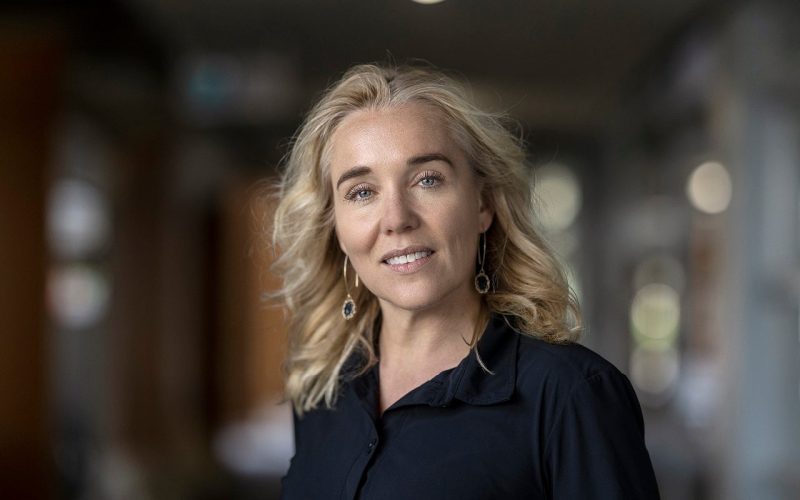Parents in the Netherlands experience enormous pressure when their unborn child is found to have a serious disorder. This is because parents in the Netherlands may terminate a pregnancy up to 24 weeks. After that, the Late Termination of Pregnancy Act comes into force and a pregnancy may only be terminated under strict criteria. In Belgium, there is no limit based on gestational age. “The Dutch approach must change”, argues professor of foetal medicine Mireille Bekker of UMC Utrecht in her oration today. She calls on politicians to remove the 24-week limit from the Dutch Penal Code.
Professor Bekker explains that the 24-week limit is a legal limit as stated in article 82A of the Dutch Penal Code, but not a medical limit. In practice, this 24-week limit has several adverse effects. First, more and more diagnostic tests are possible if an abnormality is seen at the 20-week ultrasound. All the results are often known just before 24 weeks, which in practice often gives parents only a short time to think about an enormous decision in their lives.
After 24 weeks, the Late Termination of Pregnancy Act comes into force. In practice, this legislation falls short for Dutch parents. Late Termination of Pregnancy (LZA) is an enormously stressful process for parents. And in the Netherlands, they must deal with doctors who want to provide good care, but who are also on their guard. They do not want to be prosecuted afterwards.
From the evaluation of the LZA it appears that Dutch doctors are reluctant to perform a late termination of pregnancy. “This is because the interpretation of the criteria – with which a case must comply – can be difficult in practice and also because of the subsequent review. It can take up to a year before the public prosecutor decides not to prosecute the doctor involved”, Mireille explains. “This is something that creates a lot of uncertainty among doctors and a fear of prosecution. Dutch gynaecologists therefore sometimes refer to Belgium. In Belgium there is no age limit up to which a pregnancy may be terminated because of a serious medical condition. Dutch law hinders us on the plane.” The LZA process is very stressful for parents, especially for the group of parents who go to Belgium. They feel like criminals.
Referrals to Belgium are probably a regular occurrence; here are some figures for comparison. In the period 2016-2021, there were only nine category 1 notifications in The Netherlands. This concerns a termination of pregnancy where it can be reasonably expected that the unborn child will not be able to remain alive without the mother. In the same period, there were only fourteen notifications of category 2 ESA in The Netherlands. This concerns termination of pregnancy because the unborn child suffers from one or more conditions leading to serious and irreparable functional disorders, or because the unborn child can reasonably be expected to have a limited chance of survival. Flemish gynaecologists from 3 centres indicated that together they treat about 12 patients a year from the Netherlands.
The goal of prenatal screening is to allow parents to make a reproductive choice that is in line with their own norms and values and based on correct knowledge. “A nice aim. However, sometimes the parents of an unborn child also need more time to make a careful choice”, says Mireille. For example, if parents hear about this after 23 weeks and four days of pregnancy, they must make an irrevocable decision under time pressure.
Professor Bekker outlines an example of what parents and care providers face after ‘the 24 weeks’ in practice. “For example, after 24 weeks, parents are told that there is a serious brain anomaly whereby a child will be completely and continuously dependent on care,” says Mireille. “They hear that their child will not be able to communicate and will not be self-reliant. Heavy treatments await their child. It will involve suffering, but not an improvement in the prognosis. In some cases, the case meets the current criteria. Often, the treatment team can support the parents’ choice because of the seriousness, but there is doubt as to whether the case meets the law with sufficient certainty to be able to cooperate.”
In Bekker’s experience, the decision by parents to want to terminate the pregnancy because of a serious condition in their child is never taken lightly, but very carefully and out of love for their unborn child; this applies to both the choice to continue the pregnancy and the choice to want to terminate the pregnancy.
“In my opinion, the care given to each of these parents falls short. I believe that parents should be able to make this choice even after 24 weeks, after careful consideration with their own medical team”, says Mireille. “Legal review should focus on the criteria of care, not on the content, and should take place beforehand and within a realistic and short time frame. That is why I advocate removing the 24-week limit from the Penal Code.”
